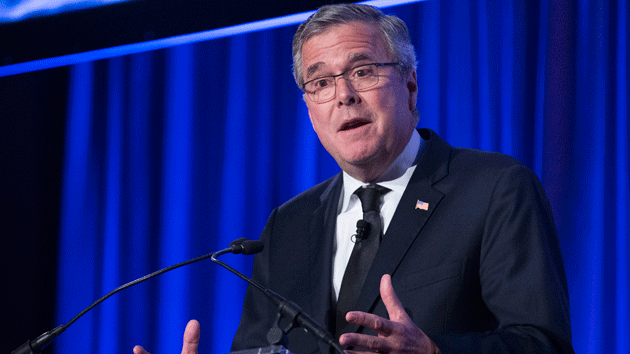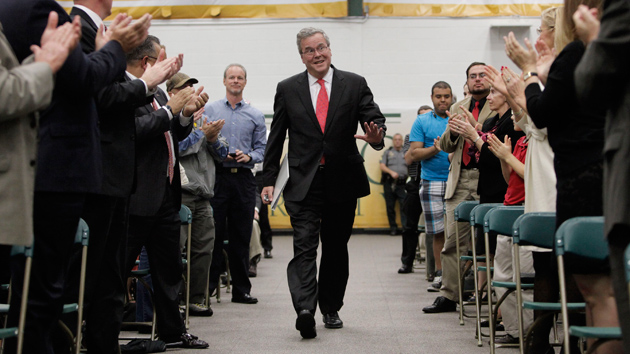Jeb Bush, one of the GOP’s top 2016 presidential prospects, campaigned Monday for Terri Lynn Land, the Republican running for Senate in Michigan. At an event in the Detroit suburbs, a staffer for Progress Michigan, a liberal advocacy group, asked Bush whether he thought Land should support the Paycheck Fairness Act.* Bush appeared not to know what the proposal is.
The high-profile legislation, much touted by Democrats, aims to close the wage gap between men and women. It would beef up legal protections for workers who ask about the wages of co-workers or share information about their own earnings while directing the Equal Employment Opportunity Commission to gather information on wages from employers. In September, the bill died in the Senate after Republicans, led by Minority Leader Mitch McConnell (R-Ky.), filibustered it.
The bill has been part of a national debate about the GOP and women, and it has played a prominent role in this Senate campaign, in which Land is running against Rep. Gary Peters (D-Mich.). Land, who served as Michigan’s secretary of state from 2003 to 2010, has been criticized by Democrats—including President Barack Obama—for saying she did not support the Paycheck Fairness Act. Yet Bush didn’t seem to know anything about this bill when the Democratic tracker asked about it:
Progress Michigan: Do you think Secretary Land should support the Paycheck Fairness Act?
Jeb Bush: Excuse me?
Progress Michigan: Do you think Secretary Land should support the Paycheck Fairness Act?
Bush: What’s the Paycheck Fairness Act?
Progress Michigan: The Paycheck Fairness Act is a piece of legislation that would ensure women receive the same pay as men…equal pay for equal work.
Bush: Equal pay for the same work, not for equal work—I think that’s the problem with it. I think there’s a definition issue.
Progress Michigan: So you don’t think Secretary Land should support it?
Bush: I don’t know. You’d have to ask her.
Correction: The original version of this article stated that the tracker who questioned Bush worked for American Bridge 21st Century, the Democratic oppo research outfit.















